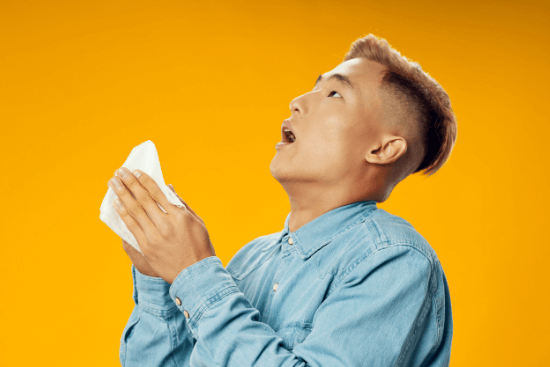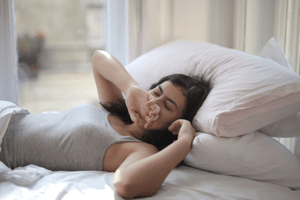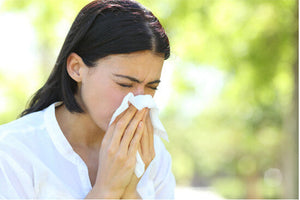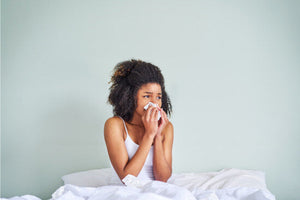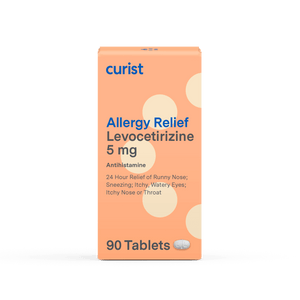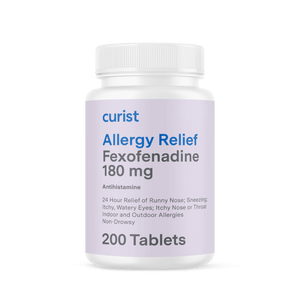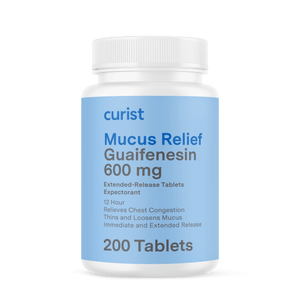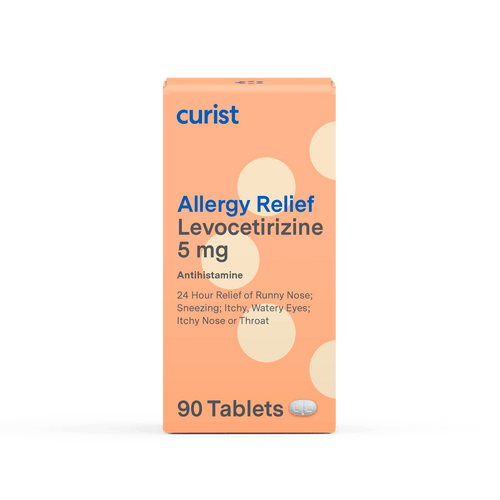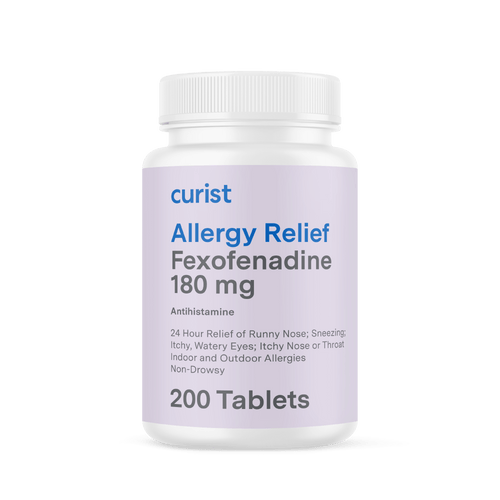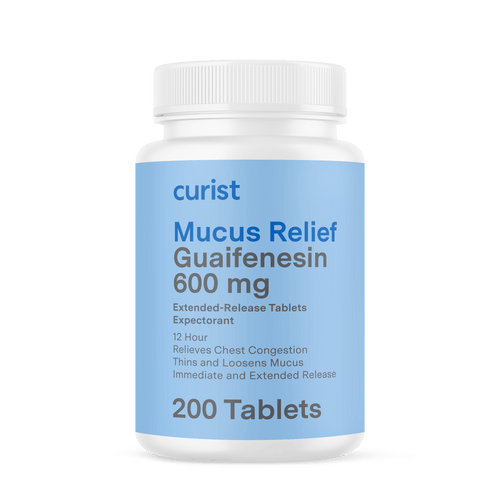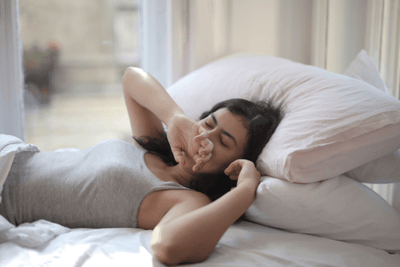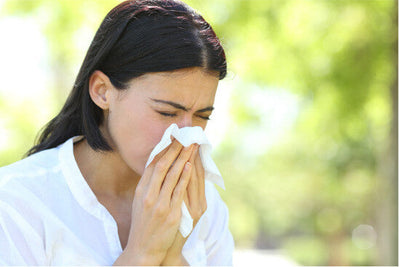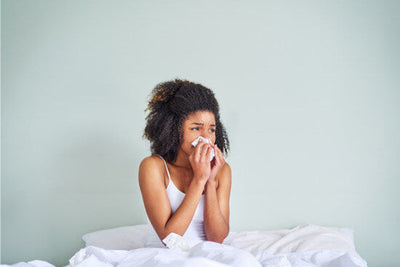Curist delivers over-the-counter medicines to your door at a fraction of the price of traditional brands. We hope everyone stays safe and healthy during this time.
Everyone sneezes. It’s completely natural! But sometimes, the sneezes just come one after another. What causes these sneezing fits, why you can't stop sneezing, and how do you stop sneezing attacks?
What Can Trigger Uncontrollable Sneezing Fits?
The most likely culprit behind your sneezing fits is allergies. With seasonal allergies, airborne triggers, like pollen, are found in higher levels in the air and can start a sneezing fit. Besides seasonal allergies, allergens from pets and dust can also cause frequent sneezing and may be why you can't stop sneezing. Sneezing caused by allergies is usually accompanied by other symptoms like congestion, itchy eyes, watery eyes, and a runny nose.
Besides Allergies, Why You Can't Stop Sneezing?
Here are some other common causes of uncontrollable sneezing fits behind why you can't stock sneezing:
- Cold or Sinus Infection: Infections can cause sneezing, in addition to other symptoms like cough, runny nose, fatigue, or even fever.
- To learn more about differentiating between allergies and a cold, check out our Colds vs. Allergies article.
- Air Quality: Whether it’s indoors or outdoors, certain particles in the air can irritate your nose and cause sneezing that you can't stop. Airborne particles like dust, dirt, and smog can inflame your sinuses and trigger sneezing. To learn more about outdoor allergies, check out Outdoor Allergy Tips: Enjoy Your Picnic Allergy Free.
- Dryness: When your sinuses are dry, they are more prone to irritation that may lead to sneezing. Dry climates and longer exposure to air conditioning can cause nasal dryness.
- Nasal Sprays: Nasal sprays like Flonase (fluticasone, available at Curist) are often used to treat allergy symptoms, but one ironic side effect may be sneezing. Sneezes triggered by nasal sprays are typically accompanied by other side effects, like throat irritation and stinging in the nose.
Why Do Allergies Cause Sneezing Fits?
Sneezing is our body’s way of forcibly removing irritants and particles from our nasal passages. Harmful viruses and bacteria that travel through the air and into our nose will irritate nasal tissue on contact, triggering a sneeze and expelling them back out. For many of us, other harmless particles, like dust, pollen, and animal dander, can also trigger allergies in our nasal cavities and cause sneezing fits as a result of allergy-induced histamine release in the nasal membranes.
How Do I Stop Continuous, Uncontrollable Sneezing Fits?
If your sneezing is caused by allergies, the quickest and best way to stop uncontrollable sneezing is to take an antihistamine, like Curist Allergy Relief (levocetirizine). Antihistamines can be used to treat allergy symptoms, but, if taken in advance, they can also help to prevent them. Besides antihistamines, nasal sprays can treat sneezing and allergies as well, but if you experience sneezing or nose/throat irritation immediately after use, consider using an oral antihistamine instead. Choosing an allergy medication often comes down to personal preference and determining what works best to treat your sneezing fits.
What is the Best Allergy Antihistamine Medicine to Stop Uncontrollable Sneezing Fits?
Antihistamines are allergy medicines that work well to treat and stop sneezing fits. There are several common antihistamines, but among the best allergy antihistamine medicine to stop uncontrollable sneezing fits is Curist Allergy Relief (levocetirizine). Here's a comparison of the common allergy medicines to treat continuous sneezing fits.
- Curist Allergy Relief (levocetirizine) - available here: the newest antihistamine, Curist Allergy Relief is similarly powerful to Zyrtec (cetirizine), but 94% of people do not experience drowsiness when taking it.
- Cetirizine (brand Zyrtec): powerful antihistamine that typically causes drowsiness more than most other newer second-generation antihistamines.
- Fexofenadine (brand Allegra): non-drowsy antihistamine, not recommended for kids under 12.
- Loratadine (brand Claritin): non-drowsy antihistamine, but slower-acting than others
|
Brand |
Ingredient |
Fast-Acting |
Drowsiness |
Safe for Kids? |
|
levocetirizine 5 mg |
✔ Yes |
✔ Does not cause drowsiness in most people |
✔ safe for ages 6 and up |
|
|
Zyrtec |
cetirizine 10 mg |
✔ Yes |
✘ Some risk of drowsiness |
✔ safe for ages 6 and up |
|
Allegra |
fexofenadine 180 mg |
✘ No (takes 1-2 hours) |
✔ Does not cause drowsiness in most people |
✘ not safe for kids under 12 |
|
Claritin |
loratadine 10 mg |
✘ No (takes 1-3 hours) |
✔ Does not cause drowsiness in most people |
✔ safe for ages 6 and up |
Tips on How To Stop Sneezing Attacks
There are many tips for stopping sneezing attacks.
1. Identify the trigger of what causes your sneezing attacks
2. Avoid potential triggers that cause sneezing
3. For sneezing caused by dryness, try using a humidifier indoors to combat dry air.
4. For sneezing caused by outdoor allergens like pollen, keep windows closed and wear a mask outdoors.
5. Take an allergy antihistamine to stop sneezing attacks, like Curist Allergy Relief.
For additional drug-free tips for beating allergies, check out Tips to Treat Allergies Without Medicine or learn more about pet-related allergies in the Curist Animal Lovers Allergy Guide.
